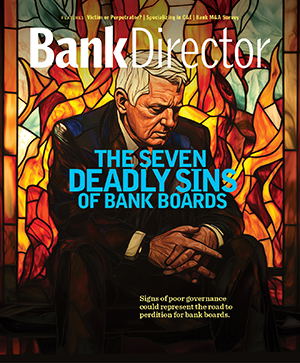
How Technology Fosters Economic Opportunity and Success
Brought to you by MANTL

Is your bank promoting financial literacy and wellness within the communities you serve?
The answer to that question may be the key to your bank’s future. For many community financial institutions, promoting financial wellness among historically underserved populations is directly linked to fostering resilience for individuals, institutions and communities.
Consider this: 7 million households in the United States didn’t have a bank account in 2019, according to the Federal Deposit Insurance Corp.; and up to 20 million others are underserved by the current financial system. Inequities persist along racial, geographical and urban lines, indicating an opportunity for local institutions to make an impact.
Many have already stepped up. According to the Banking Impact Report, which was conducted by Wakefield Research and commissioned by MANTL, 55% of consumers said that community financial institutions are more adept at providing access to underrepresented communities than neobanks, regional banks or megabanks. In the same study, nearly all executives at community institutions reported providing a loan to a small business owner who had been denied by a larger bank. And 90% said that their institution either implemented or planned to implement a formal program for financial inclusion of underserved groups.
Technology like online account origination can play a critical role in bringing these initiatives to life. Many forward-thinking institutions are actively creating tools and programs to turn access into opportunity – helping even their most vulnerable customers participate more meaningfully in the local economy.
One institution, 115-year-old Midwest BankCentre based in St. Louis, is all-in when it comes to inclusion. The bank partnered with MANTL to launch online deposit origination and provide customers with convenient access to market-leading financial products at competitive rates.
Midwest BankCentre has also committed $200 million to fostering community and economic development through 2025, with a focus on nonprofits, faith-based institutions, community development projects and small businesses for the benefit ofr historically disinvested communities. The bank offers free online financial education to teach customers about money basics, loans and payments, buying a home and paying for college, among others.
Midwest BankCentre executives estimate that $95 out of every $100 deposited locally stays in the St. Louis region; these dollars circulate six times throughout the regional economy.
In a study conducted in partnership with Washington University in St. Louis, researchers found that Midwest Bank Centre’s financial education classes created an additional $7.1 million in accumulated wealth in local communities while providing critical knowledge for household financial stability.
“When you work with a community banker, you are working with a neighbor, friend, or the person sitting next to you at your place of worship,” says Danielle Bateman Girondo, executive vice president of marketing at Midwest BankCentre. “Our customers often become our friends, and there’s a genuine sense of trust and mutual respect. Put simply, it’s difficult to have that type of relationship, flexibility, or vested interest at a big national bank.”
What about first-time entrepreneurs? According to the U.S. Bureau of Labor Statistics, approximately 33% of small businesses fail within 2 years. By year 10, 66.3% have failed.
Helping first-time entrepreneurs benefits everyone. Banks would gather more deposits and make more loans. Communities would flourish as more dollars circulate in the local economy. And individuals with more paths to economic independence would prosper.
For Midwest BankCentre, one part of the solution was to launch a Small Business Academy in March 2021, which provides practical education to help small businesses access capital to grow and scale.
The program was initially launched with 19 small businesses participating in the bank’s partnership with Ameren Corp., the region’s energy utility, with a particular focus on the utility’s diverse suppliers. And 14 small business owners and influencers participated in the bank’s partnership with the Hispanic Chamber of Commerce of Metro St. Louis. Midwest BankCentre teaches small businesses how to “think like a banker” to gain easier access to capital by understanding their financial statements and the key ratios.
Efforts like these might explain why, according to the Banking Impact Report, 69% of Hispanic small business owners and 77% of non-white small business owners believe it’s important that their bank supports underserved communities. Accordingly, non-white small businesses are significantly more likely to open a new account at a community bank or credit union: 70%, compared to 47% of white small businesses.
This can be a clear differentiator for a community bank: a competitive advantage in a crowded marketplace.
For today’s community banks, economic empowerment isn’t a zero-sum game; it’s a force multiplier. With the right strategies in place, it can be a winning proposition for the communities and markets within your institution’s sphere of influence.


